Independence Day: Why these 5 Indian brands are seeing huge growth with the #vocalforlocal movement
The #vocalforlocal movement to make India Atmanirbhar put a spotlight on Indian entrepreneurs who were crucial in making it a success. The movement opened many opportunities and changed customer perception of buying ‘Made in India’ goods in the last year, helping these brands shine.
The ‘vocal for local’ concept dates back to 1905 when the Swadeshi Movement started in India, which called for using ‘Made in India’ products and burning British-made goods.
However, as time passed, more developmental programmes peaked in post-independent India. And the country started losing its indigenous industries to globalisation.
In May 2020, the government addressed the importance of using ‘Made in India’ products in a clarion call to make India Atmanirbhar. Prime Minister Narendra Modi said, “It's time to make our motto local.”
This put a spotlight on Indian entrepreneurs, who worked towards making ‘Atmanirbhar Bharat’ a success.
“Global brands began locally. But when their people started marketing and branding, they became global,” the PM said while addressing the nation.
Many saw this shift towards indigenous buying, a trend that would fade with time. However, Indian entrepreneurs had a much different experience.
Here’s how and why these five Indian brands saw tremendous growth with the #vocalforlocal movement.
boAt

Vivek Gambhir, CEO, boAt
Vivek Gambhir, CEO of boAt, says today’s consumers are very aware and make informed decisions.
“In India, the COVID-19 pandemic transformed the buying behaviour and consumer sentiment. Increasingly, consumers are seeking Made in India and Made for India brands which are affordable products but with world-class quality and design,” he says.
boAt’s sales increased by 50 percent post the COVID-19 lockdown last year, and Vivek says the growth has exceeded expectations. As reported by IDC, boAt is now the fifth-largest wearables brand globally.
According to a Statista report, the ‘Made in India’ origination for products has been a positive influence among consumers. The Indian market is diverse and has a plethora of international brands that dominate the market — both in an organised and unorganised way.
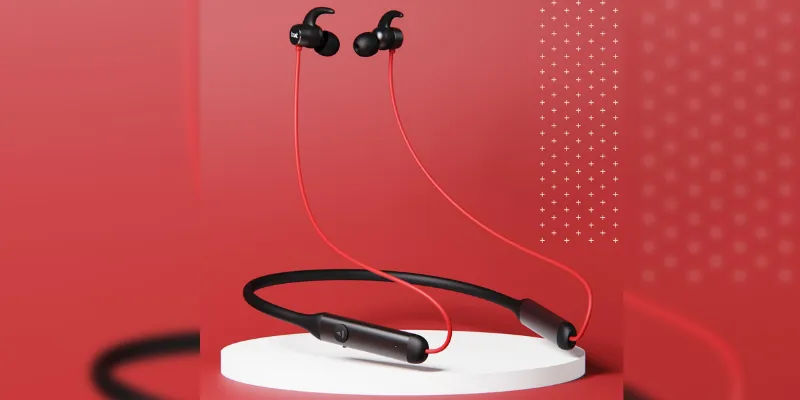
boAt's wireless earphones
In the audio devices sector — which has a lot of Chinese knock-offs — Vivek says consumers have reposed tremendous confidence and trust in the brand, and this has led to strong market share gains.
Despite stiff competition from foreign brands like JBL and Sony, boAt has achieved a close pulse with the Gen-Z consumer segment with Indian sensibilities and has a much stronger lifestyle appeal with this segment.
At present, the brand has a total addressable market close to $4 billion, growing at over 50 percent this fiscal year, Vivek claims.
Alberto Torressi
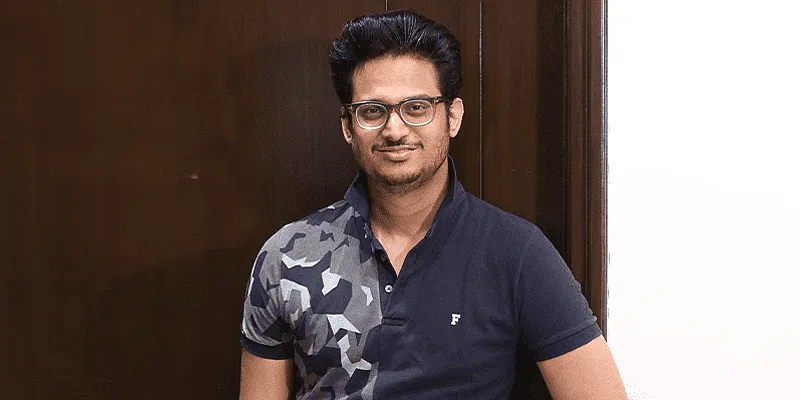
Ishaan Sachdeva, Director, Alberto Torresi
Ishaan Sachdeva, Founder of Alberto Torresi — Agra-based footwear brand — says, not long ago, people challenged the quality of local products, but off-late, this perception is gradually changing.
He adds that foreign brands have always been there and they’ll always be there, but the real change would come when we compete with them successfully in our nation.
“Now, customers are more conscious about quality, and if Indian brands are serving them the best of it, they won’t deviate from foreign products,” he claims.
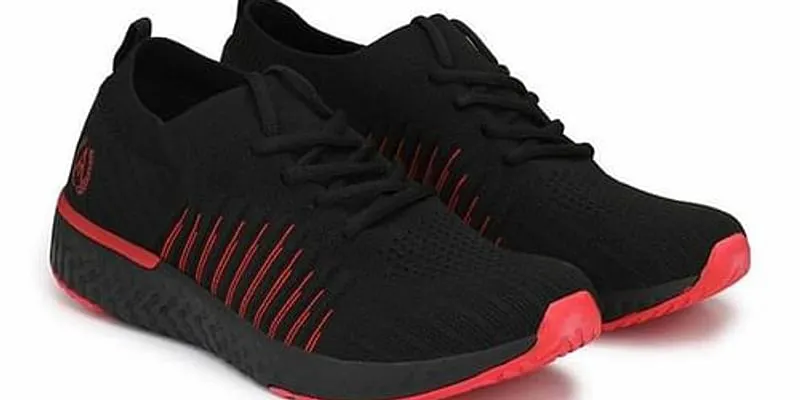
Alberto Torresi's Jerry Black sneakers
Alberto Torresi grew between 10-15 percent amidst the COVID-19 pandemic, which competes with the likes of Bata, Adidas, and Puma.
Ishaan says the growth corresponds to consumer sentiments towards a local brand that gives them quality at a price-point they can afford.
Alberto Torressi made its domestic turnover of Rs 35 crore in FY19-20.
Fast & Up
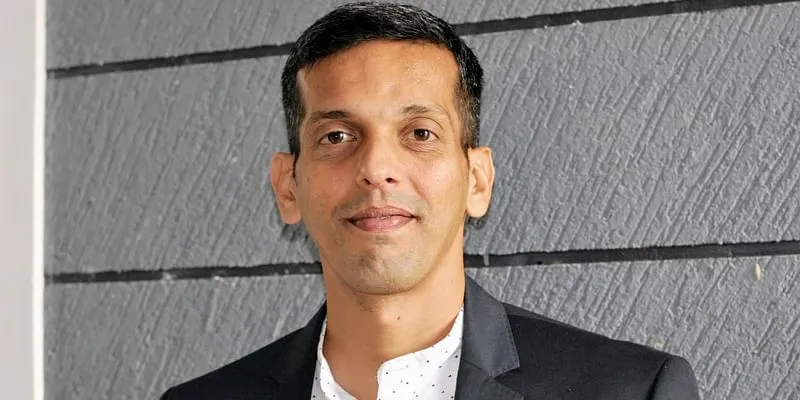
Vijayraghavan Venugopal, CEO & Cofounder, Fast&Up
Fast & Up is an Indian B2C brand for effervescent nutrition, that is, nutrition tablets that have a higher absorption rate. Last year, it recorded more than 2.5X growth.
“Made in India is a thoughtful initiative by the government. It boosted the confidence of many Indian entrepreneurs. With so much noise about this, our industry witnessed a positive impact too. Even the startup brands have benefitted from this,” says Vijayraghavan Venugopal, Co-founder and CEO, Fast & Up.
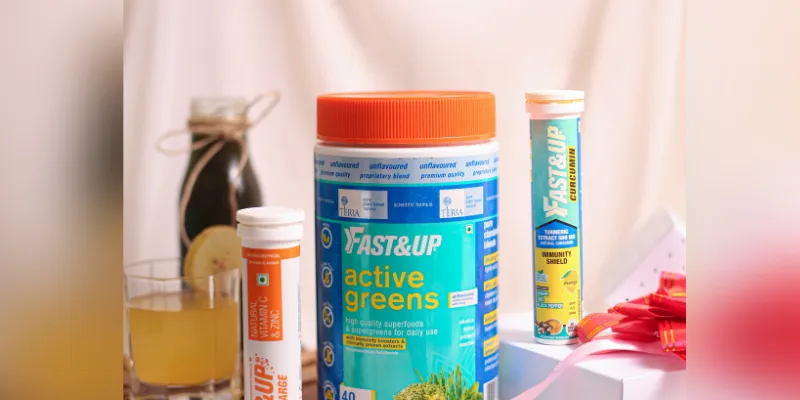
Fast&Up product range
In 2020, the brand introduced various products to understand the audience's needs and demands. It has a major presence in India and competes with the likes of the US-based Gatorade.
Since its inception in 2015, the brand has now reached more than 1.5 million households across the country, with the majority of customers hailing from Mumbai, Chennai, Pune, Delhi, Bengaluru, and Hyderabad.
Mamaearth
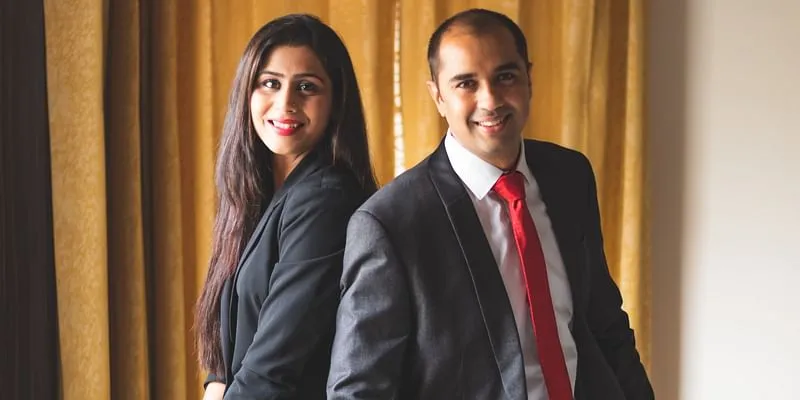
Ghazal Alagh and Varun Alagh, cofounders, Mamaearth
Mamaearth is one of India’s first brands that was launched with a no-toxin proposition for mother and baby care in 2016, and since then, it has been disruptively growing over the last four years.
Varun Alagh, Co-founder of Mamaearth, says the brand is a completely Made in India product, and consumer sentiment towards choosing local brands in the last year has worked in their favour.
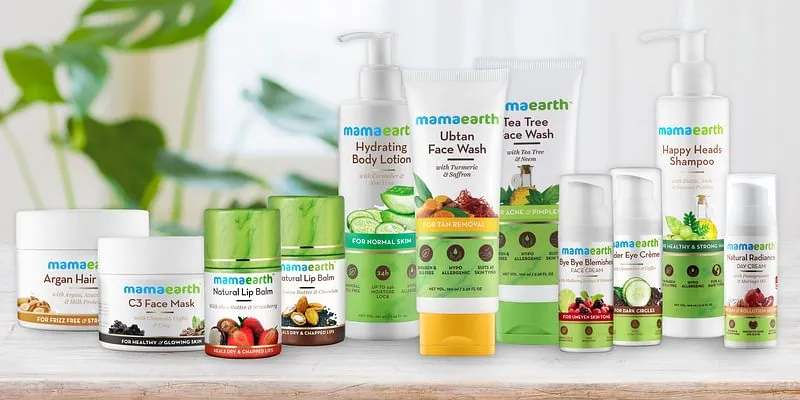
Mamaearth's product range
“We owe this success to the consumers who have loved our brand and product proposition. We achieved a Rs 500 crore run rate in the last year with Mamaerth,” he adds.
Another major reason for the brand to grow lies in the ‘Indianness’ it adds to its personal care products, including onion hair oil, ubtan face wash, hing tummy roll on, and more.
The Indian Ethnic Co

Lekhinee Desai and Hetal Desai, Cofounders, The Indian Ethnic Co
Lekhinee Desai, Co-founder of The Indian Ethnic Co, feels that customers have become more open to the idea of trying new and smaller brands attributable to the increased conversations around supporting local businesses.
The Indian Ethnic Co is a Mumbai-based contemporary ethnic wear brand that supports over 1,000 artisans from across India and deals in handcrafted fabrics like Ajrakh, Bandhani, Bagh, Batru, Balotra, Dabu, Sanganeri, and more.
“People have started to notice the quality gone into making the products rather than just blindly looking for brand names. Small labels have started coming into the consideration set of most people compared to previously when shopping by brand name was the mantra,” she adds.
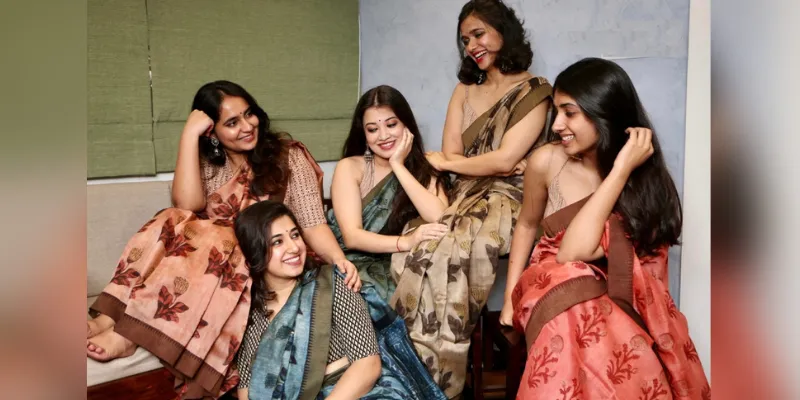
The Indian Ethnic Co's Gajji Silk saree with Tie Dye Fine Bandhej and Ajrakh Hand Block Print
The Indian Ethnic Co’s marketing strategy also did wonders for them as they showcased real women and not models, dancing in sarees to bring out the national culture.
Lekhinee says that a lot of influencers have also helped drive this message and their adoption of buying local products. Calling out that they can be better than big brands has also encouraged and given the confidence to consumers to adopt locally-made products.
Lekhinee claims that the brand grew by over 200 percent in the last year, and this can only be attributed to the heightened consciousness about buying local.
YourStory’s flagship startup-tech and leadership conference will return virtually for its 13th edition on October 25-30, 2021. Sign up for updates on TechSparks or to express your interest in partnerships and speaker opportunities here.
For more on TechSparks 2021, click here.
Applications are now open for Tech30 2021, a list of 30 most promising tech startups from India. Apply or nominate an early-stage startup to become a Tech30 2021 startup here
Edited by Suman Singh









